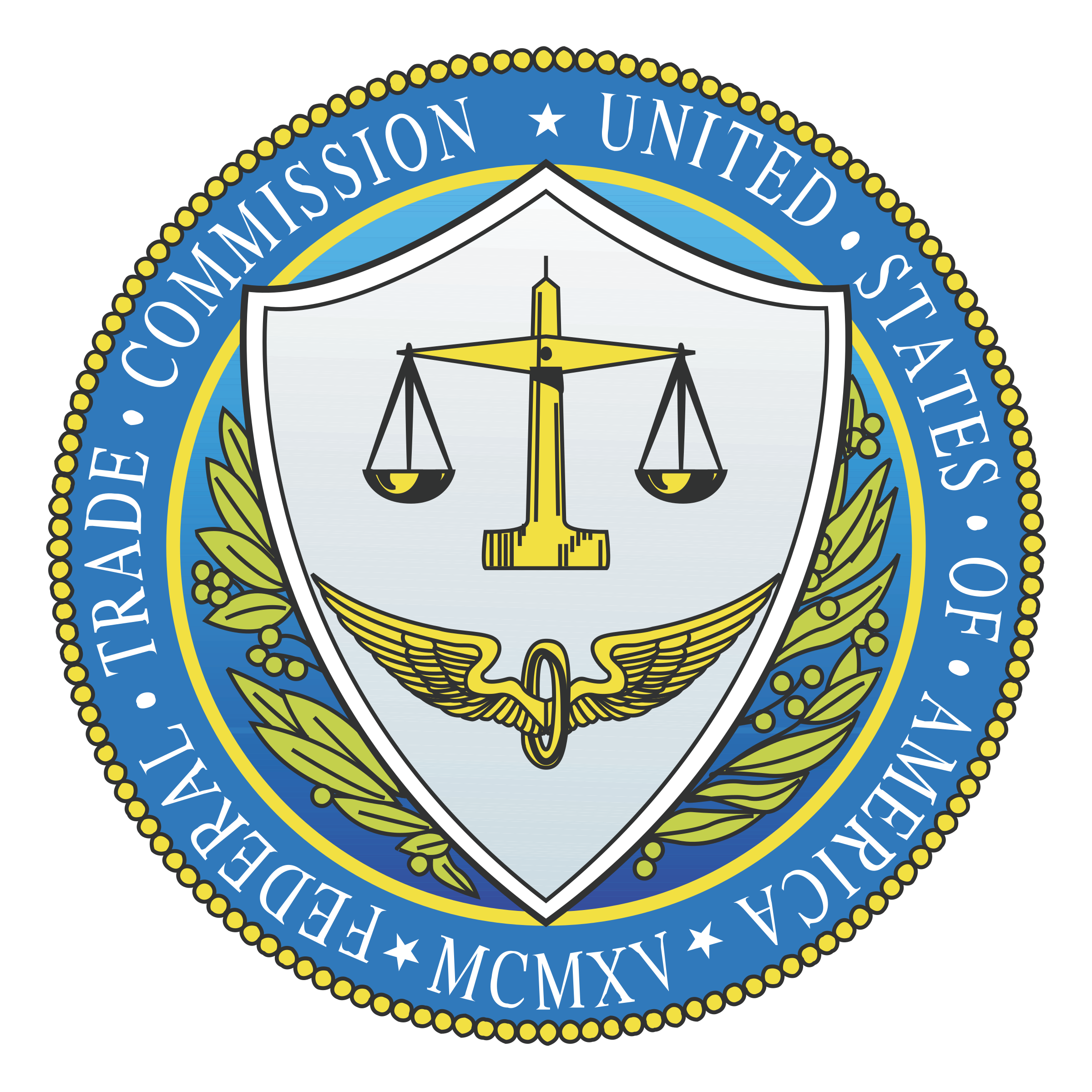Federal Trade Commission Probes OpenAI: Implications For AI Development

Table of Contents
The FTC's Concerns Regarding OpenAI
The FTC's investigation into OpenAI is multifaceted, focusing on several key areas of concern related to AI ethics and responsible AI development.
Data Privacy Violations
A central concern revolves around OpenAI's data handling practices. The FTC is likely scrutinizing how OpenAI collects, uses, and protects user data employed in training its sophisticated AI models. This scrutiny stems from concerns regarding:
- Unauthorized data scraping: The methods OpenAI used to gather the massive datasets that power ChatGPT are under the microscope. Questions around consent and the legality of scraping data from various online sources are central to this aspect of the investigation.
- Lack of transparency about data usage: The FTC is likely investigating whether OpenAI adequately informs users about how their data is used in training AI models and whether this aligns with user expectations and legal requirements.
- Potential violations of consumer privacy laws: OpenAI's practices are being assessed against various data privacy regulations, such as the California Consumer Privacy Act (CCPA) and other international laws, to determine if any violations occurred.
- The impact on children's data privacy: Given ChatGPT's accessibility, the FTC is likely paying close attention to the potential impact of data collection on children's privacy, which is subject to stricter regulations.
Algorithmic Bias and Discrimination
Another critical area of investigation is the potential for algorithmic bias and discrimination in OpenAI's AI models. The FTC will examine whether ChatGPT and other OpenAI products exhibit bias, leading to unfair or discriminatory outcomes for certain groups. Key questions include:
- Analysis of biases present in training data: The datasets used to train AI models often reflect existing societal biases, and the FTC will assess if these biases have manifested in OpenAI's models.
- Impact of biased outputs on vulnerable populations: The investigation will likely focus on whether any biases in OpenAI’s models disproportionately harm vulnerable populations.
- Methods for mitigating algorithmic bias in future models: The FTC's scrutiny will extend to OpenAI's efforts (or lack thereof) to mitigate bias in its AI models and what measures are in place to prevent future issues.
- The need for fairness and accountability in AI algorithms: The investigation underscores the critical need for fairness, transparency, and accountability in the design and deployment of AI algorithms.
Implications for AI Development and Regulation
The FTC's probe into OpenAI has far-reaching implications for the entire AI industry and the regulatory landscape.
Increased Scrutiny of AI Companies
The FTC's actions set a significant precedent. Other AI companies developing and deploying similar technologies can expect increased regulatory scrutiny:
- A call for greater transparency and accountability in AI development: This investigation emphasizes the need for AI companies to be more transparent about their data practices and the development of their AI models.
- The development of stronger regulatory frameworks for AI: The FTC's investigation is likely to accelerate the development of stronger regulatory frameworks for AI, both domestically and internationally.
- Potential impacts on innovation and investment in the AI sector: Increased regulation could potentially stifle innovation and reduce investment in the AI sector, while also providing more legal certainty.
- The need for industry self-regulation to avoid stricter government oversight: Proactive industry self-regulation could help to mitigate the need for more stringent government intervention.
The Future of AI Ethics and Governance
The OpenAI investigation underscores the critical need for proactive measures to ensure AI ethics and responsible AI development are at the forefront of future innovations. This means:
- The role of ethical considerations in AI design and implementation: Ethical considerations must be integrated into every stage of AI development, from data collection to model deployment.
- The development of AI ethics frameworks and best practices: The development and adoption of comprehensive AI ethics frameworks and best practices are crucial for guiding responsible AI development.
- The importance of involving diverse stakeholders in AI governance: Meaningful participation from diverse stakeholders – including ethicists, policymakers, and the public – is vital in shaping AI governance.
- The potential for international cooperation on AI regulation: Global collaboration on AI regulation is essential to ensure consistency and effectiveness across jurisdictions.
The Broader Impact on Generative AI and ChatGPT's Future
The FTC's investigation has significant implications for the future of generative AI and the continued success of ChatGPT.
Impact on User Trust and Adoption
The FTC's scrutiny could significantly impact user trust and adoption of AI technologies such as ChatGPT:
- The importance of building user trust through transparency and ethical practices: OpenAI, and the broader AI community, must prioritize transparency and ethical practices to rebuild and maintain user trust.
- Strategies for mitigating risks and building confidence in AI systems: Proactive risk mitigation strategies are needed to build public confidence in the safety and reliability of AI systems.
- The potential for stricter user consent protocols and data protection measures: We can anticipate stricter consent protocols and more robust data protection measures in the future.
Long-Term Effects on Generative AI Innovation
The outcome of the FTC's investigation will shape the trajectory of generative AI innovation:
- The need for a balance between innovation and responsible AI development: Striking a balance between fostering innovation and ensuring responsible AI development is paramount.
- The potential for changes in business models and data handling practices: AI companies may need to adapt their business models and data handling practices to comply with evolving regulations.
- The long-term implications for the competitive landscape in the generative AI market: The investigation’s outcome will have a long-lasting effect on the competitive landscape, potentially reshaping the market and influencing the development of future AI technologies.
Conclusion
The Federal Trade Commission's investigation into OpenAI is a pivotal moment for the AI industry. It underscores the critical need to address data privacy concerns, mitigate algorithmic bias, and establish robust ethical frameworks for AI development. The outcome will profoundly shape the future of AI regulation and innovation, influencing how AI technologies are developed, deployed, and governed. Proactive engagement with ethical considerations and transparent data handling practices are not just advisable but essential for maintaining public trust and ensuring responsible AI development. Ignoring the implications of the FTC's probe on OpenAI could have severe consequences. Understanding the complexities of AI development and navigating the evolving regulatory landscape is now more critical than ever for the success of any AI project.

Featured Posts
-
 Despite Trade Disputes Canadian Investment In Us Stocks Soars
Apr 23, 2025
Despite Trade Disputes Canadian Investment In Us Stocks Soars
Apr 23, 2025 -
 Marches Financiers L Integrale Bfm Bourse Du 24 Fevrier
Apr 23, 2025
Marches Financiers L Integrale Bfm Bourse Du 24 Fevrier
Apr 23, 2025 -
 Upl Dinamo Kiyiv Vs Obolon Rakhunok Ta Khid Gri 18 Kvitnya
Apr 23, 2025
Upl Dinamo Kiyiv Vs Obolon Rakhunok Ta Khid Gri 18 Kvitnya
Apr 23, 2025 -
 Akhr Thdyth Asear Aldhhb Alywm Balsaght
Apr 23, 2025
Akhr Thdyth Asear Aldhhb Alywm Balsaght
Apr 23, 2025 -
 The Destruction Of Pope Franciss Ring A Papal Tradition
Apr 23, 2025
The Destruction Of Pope Franciss Ring A Papal Tradition
Apr 23, 2025
Latest Posts
-
 Stephen Kings 2024 Movie Slate The Monkey And Two More Thrilling Films
May 10, 2025
Stephen Kings 2024 Movie Slate The Monkey And Two More Thrilling Films
May 10, 2025 -
 5 Hour Stephen King Tv Show Binge Your Next Weekend Watch
May 10, 2025
5 Hour Stephen King Tv Show Binge Your Next Weekend Watch
May 10, 2025 -
 Nhl Playoffs Barbashevs Overtime Goal Levels Series For Knights
May 10, 2025
Nhl Playoffs Barbashevs Overtime Goal Levels Series For Knights
May 10, 2025 -
 Complete A Stephen King Series In Under 5 Hours Streaming Now
May 10, 2025
Complete A Stephen King Series In Under 5 Hours Streaming Now
May 10, 2025 -
 Barbashevs Ot Winner Knights Edge Wild Series Tied 2 2
May 10, 2025
Barbashevs Ot Winner Knights Edge Wild Series Tied 2 2
May 10, 2025
